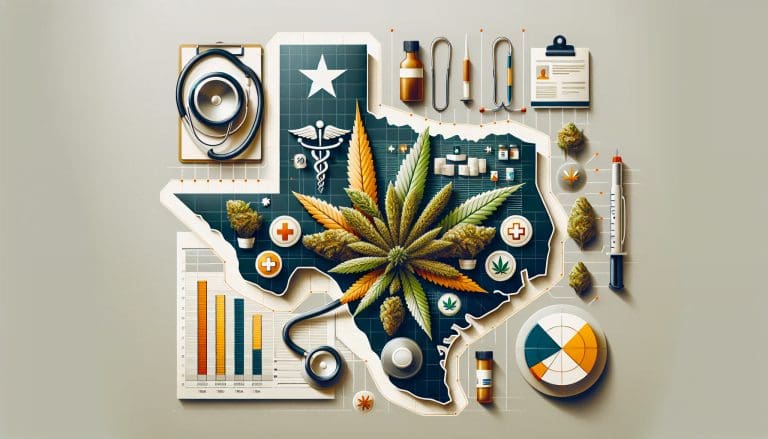Exploring the Impact of Marijuana on Arkansas’s Economy: An Overview
Since the legalization of medical marijuana in Arkansas in 2016, the state’s economy has experienced significant changes. The introduction of this new industry has not only created jobs but also generated substantial tax revenue, contributing to the overall economic growth of the state.
Job Creation and Economic Growth
One of the most significant impacts of the medical marijuana industry in Arkansas has been job creation. According to a report by Arkansas Online, the industry has created hundreds of jobs, ranging from cultivation and dispensary jobs to ancillary roles such as security, legal, and accounting services. This has not only reduced unemployment rates but also stimulated economic growth.
Tax Revenue Generation
Medical marijuana has also become a significant source of tax revenue for Arkansas. As per the Department of Finance and Administration, the state imposes a 6.5% sales tax and a 4% privilege tax on medical marijuana. This has resulted in millions of dollars in tax revenue, which is used to fund various state programs and services.
Private Marijuana Companies
Arkansas’s medical marijuana industry has also seen the rise of several private companies. These companies not only contribute to the state’s economy through job creation and tax revenue but also play a crucial role in providing patients with access to medical marijuana. Some of the biggest private marijuana companies in Arkansas include Natural State Medicinals Cultivation, Bold Team LLC, and Osage Creek Cultivation.
Conclusion
In conclusion, the legalization of medical marijuana has had a positive impact on Arkansas’s economy. It has created jobs, generated tax revenue, and led to the establishment of several private companies. As the industry continues to grow, it is expected to contribute even more to the state’s economy in the future.
What is the economic demand for marijuana in Arkansas?
The economic demand for marijuana in Arkansas has been steadily increasing since the state legalized medical marijuana in 2016. According to the Arkansas Department of Health, as of 2021, there are over 70,000 registered medical marijuana patients in the state, indicating a strong demand for the product.
Increasing Sales and Dispensaries
Since the first dispensary opened in 2019, sales of medical marijuana have been robust. The Arkansas Democrat-Gazette reported that by the end of 2020, sales had topped $175 million. This rapid growth in sales suggests a high economic demand for marijuana in the state.
Furthermore, the number of dispensaries in the state has also been increasing to meet this demand. As of 2021, there are 32 dispensaries operating in the state, with six more expected to open soon.
Job Creation and Economic Impact
The economic demand for marijuana in Arkansas has also led to job creation. According to a report by Leafly, the marijuana industry has created over 1,500 jobs in the state as of 2020. This not only benefits those directly employed in the industry but also has a positive impact on the state’s economy as a whole.
Moreover, the economic impact of the marijuana industry in Arkansas extends beyond direct sales and job creation. The industry also contributes to the state’s economy through taxes and licensing fees. In 2020, the state collected over $28 million in taxes from marijuana sales.
Future Growth
Looking ahead, the economic demand for marijuana in Arkansas is expected to continue growing. A report by Marijuana Business Daily predicts that annual sales could reach $300 million by 2025. This suggests that the economic demand for marijuana in Arkansas will remain strong in the coming years.
In conclusion, the economic demand for marijuana in Arkansas is high and continues to grow. This is reflected in the increasing sales, the number of dispensaries, and the job creation in the state. With the potential for future growth, the economic impact of the marijuana industry in Arkansas is likely to be significant.
What are the marijuana taxes in Arkansas and who collects them?
Medical marijuana in Arkansas is subject to a number of taxes, which are collected by various state agencies. Understanding these taxes is crucial for patients seeking to obtain a medical marijuana card through platforms like mmj.com.
State Sales Tax
Firstly, all sales of medical marijuana in Arkansas are subject to the state’s standard sales tax of 6.5%. This tax is collected by the Arkansas Department of Finance and Administration.
Special Privilege Tax
In addition to the state sales tax, medical marijuana is also subject to a special privilege tax of 4%. This tax is imposed on the first sale of medical marijuana by a cultivation facility or dispensary. The special privilege tax is also collected by the Arkansas Department of Finance and Administration.
Local Sales Tax
Depending on the location of the dispensary, medical marijuana purchases may also be subject to local sales taxes. These taxes vary by city and county, and are collected by the respective local government agencies.
Who Collects the Taxes?
The taxes on medical marijuana are collected by the Arkansas Department of Finance and Administration at the state level, and by local government agencies at the city or county level. The collected taxes are then used to fund various state and local programs and services.
It’s important to note that these taxes are typically included in the price of the product at the point of sale, so patients do not need to calculate or pay these taxes separately.
For more information on the taxation of medical marijuana in Arkansas, patients can visit the Arkansas Department of Finance and Administration website.
Understanding the taxes associated with medical marijuana is an important part of the process for patients seeking to obtain a medical marijuana card in Arkansas. By being informed about these taxes, patients can better plan for the costs associated with their medical marijuana treatment.
How much has marijuana generated in tax revenue in Arkansas?
Since the legalization of medical marijuana in Arkansas in 2016, the state has seen a significant increase in tax revenue. According to the Arkansas Department of Finance and Administration, as of 2021, the state has generated over $30 million in tax revenue from the sale of medical marijuana.
Breakdown of Tax Revenue
The tax revenue generated from medical marijuana in Arkansas is divided into several categories. The state imposes a 6.5% sales tax and a 4% privilege tax on the sale of medical marijuana. The revenue from these taxes is distributed among various state programs and services.
- General Revenue: The majority of the tax revenue, approximately 50%, goes to the state’s general revenue fund.
- Skills Development Fund: About 30% of the tax revenue is allocated to the Department of Career Education’s Skills Development Fund.
- State Crime Lab: The State Crime Lab receives around 10% of the tax revenue.
- Department of Health: The Department of Health also receives 10% of the tax revenue for various health programs.
Impact on Arkansas’s Economy
The tax revenue generated from medical marijuana has had a positive impact on Arkansas’s economy. It has not only provided a new source of income for the state but also created new jobs and business opportunities. According to a report by Arkansas Online, the state’s medical marijuana industry has created over 500 jobs since its inception.
Future Projections
With the continued growth of the medical marijuana industry in Arkansas, the state is expected to see an increase in tax revenue in the coming years. According to the Arkansas Legislative Tax Handbook, the state is projected to generate over $60 million in tax revenue from medical marijuana by 2027.
In conclusion, the legalization of medical marijuana in Arkansas has proven to be a significant source of tax revenue for the state. This revenue has been instrumental in funding various state programs and services, contributing to the overall economic growth of Arkansas.
What are some of the biggest private marijuana companies in Arkansas?
Arkansas, like many other states in the U.S., has seen a significant growth in the medical marijuana industry since its legalization in 2016. This growth has led to the emergence of several private marijuana companies that are making a significant impact on the state’s economy. Here are some of the biggest private marijuana companies in Arkansas.
1. Bold Team LLC
Bold Team LLC was the first company to grow and sell medical marijuana in Arkansas. Located in Cotton Plant, the company has a state-of-the-art cultivation facility and is committed to providing high-quality medical marijuana to patients across the state.
2. Natural State Medicinals Cultivation
Natural State Medicinals Cultivation is another leading private marijuana company in Arkansas. The company prides itself on its organic cultivation methods and its commitment to patient care. Natural State Medicinals Cultivation offers a wide range of medical marijuana products, including flowers, concentrates, and edibles.
3. Osage Creek Cultivation
Osage Creek Cultivation is a family-owned and operated company that grows and processes medical marijuana in Berryville. The company is known for its sustainable cultivation practices and its commitment to producing high-quality medical marijuana products.
4. Delta Medical Cannabis Company
Delta Medical Cannabis Company is a veteran-owned business that cultivates, processes, and dispenses medical marijuana in Arkansas. The company is committed to providing safe, effective, and affordable medical marijuana products to patients in the state.
These companies, among others, are contributing significantly to the growth of the medical marijuana industry in Arkansas. They are not only providing patients with access to high-quality medical marijuana products but are also creating jobs and contributing to the state’s economy.
For more information on the medical marijuana industry in Arkansas, visit the Arkansas Department of Health’s website.


















